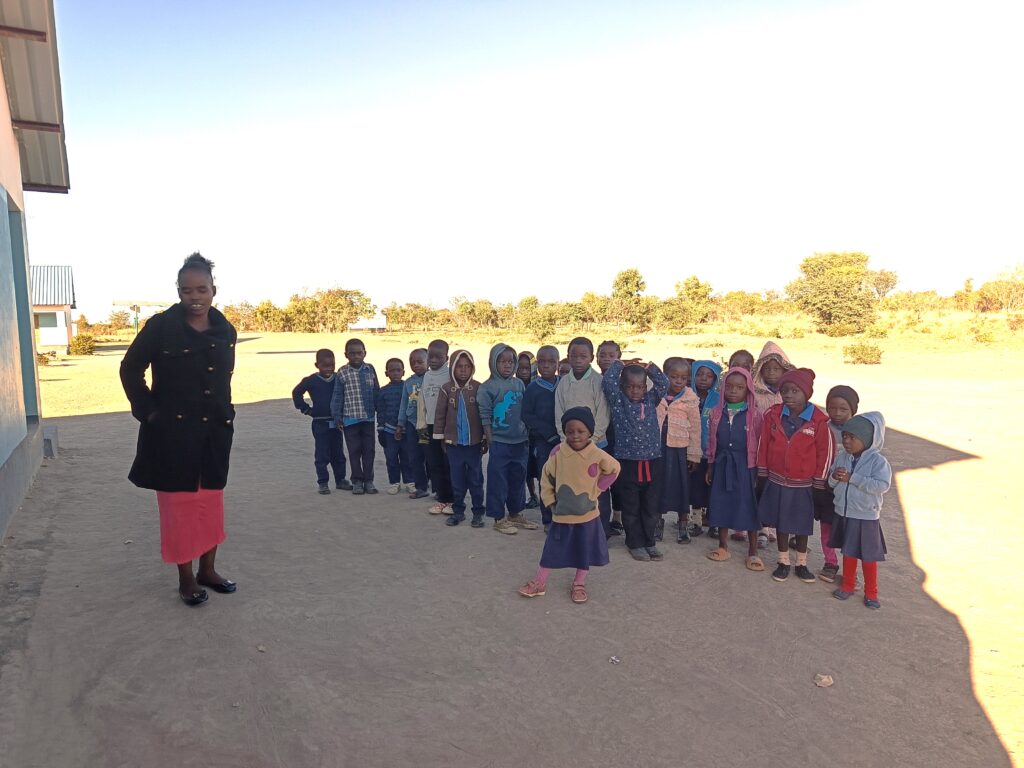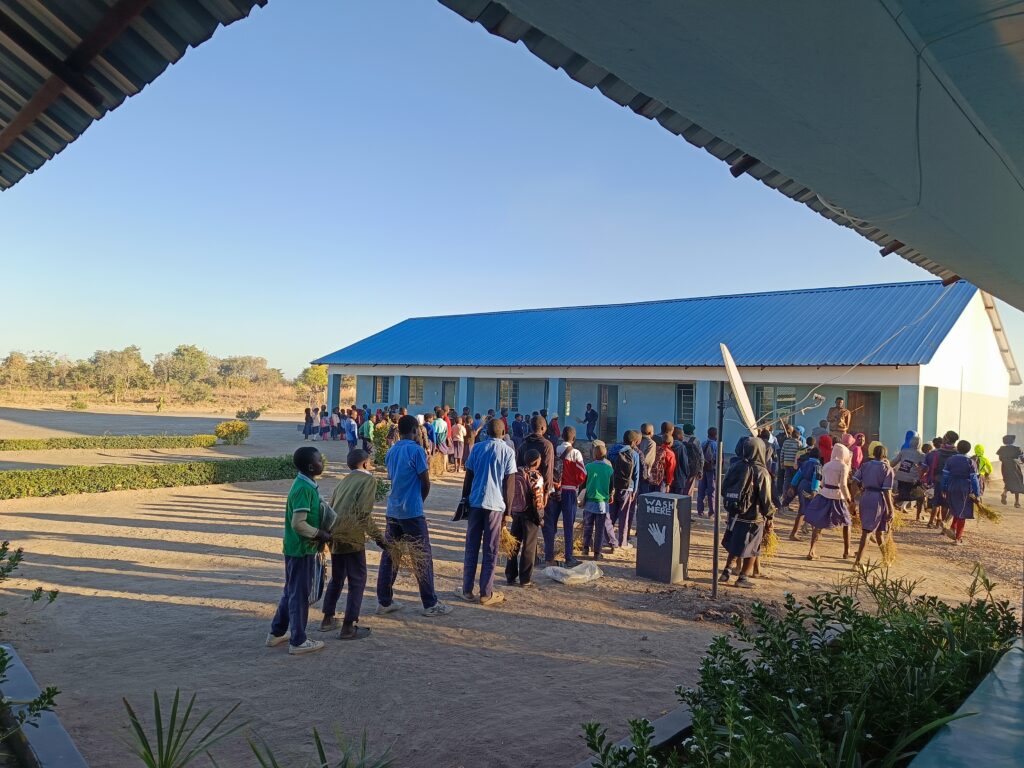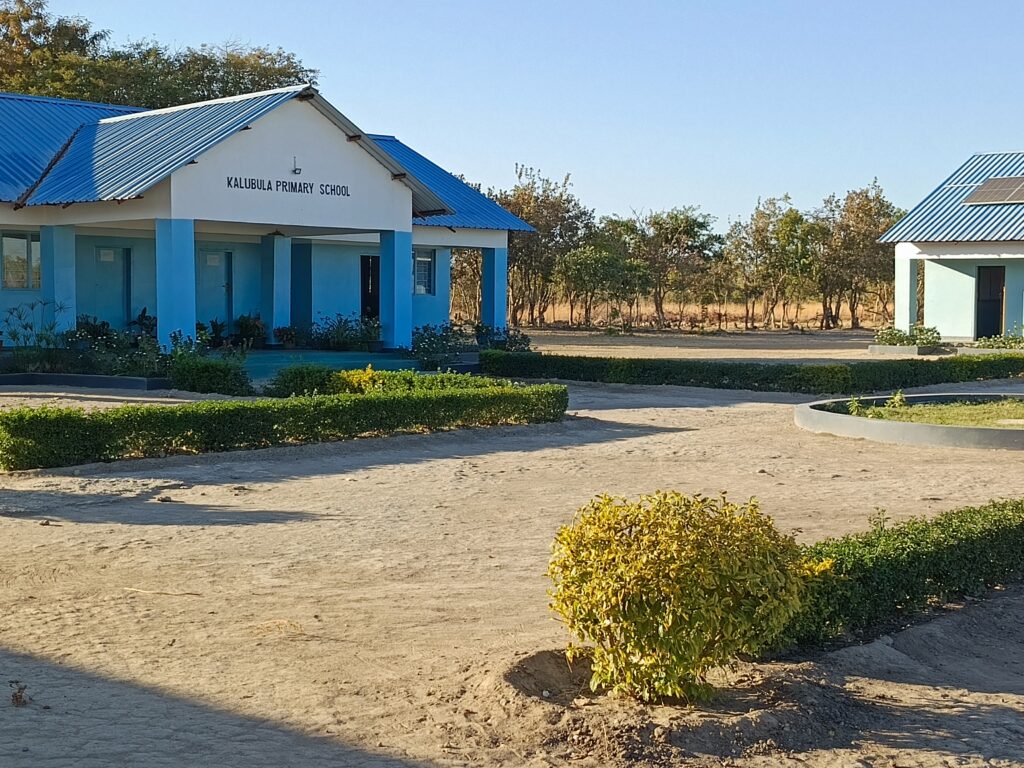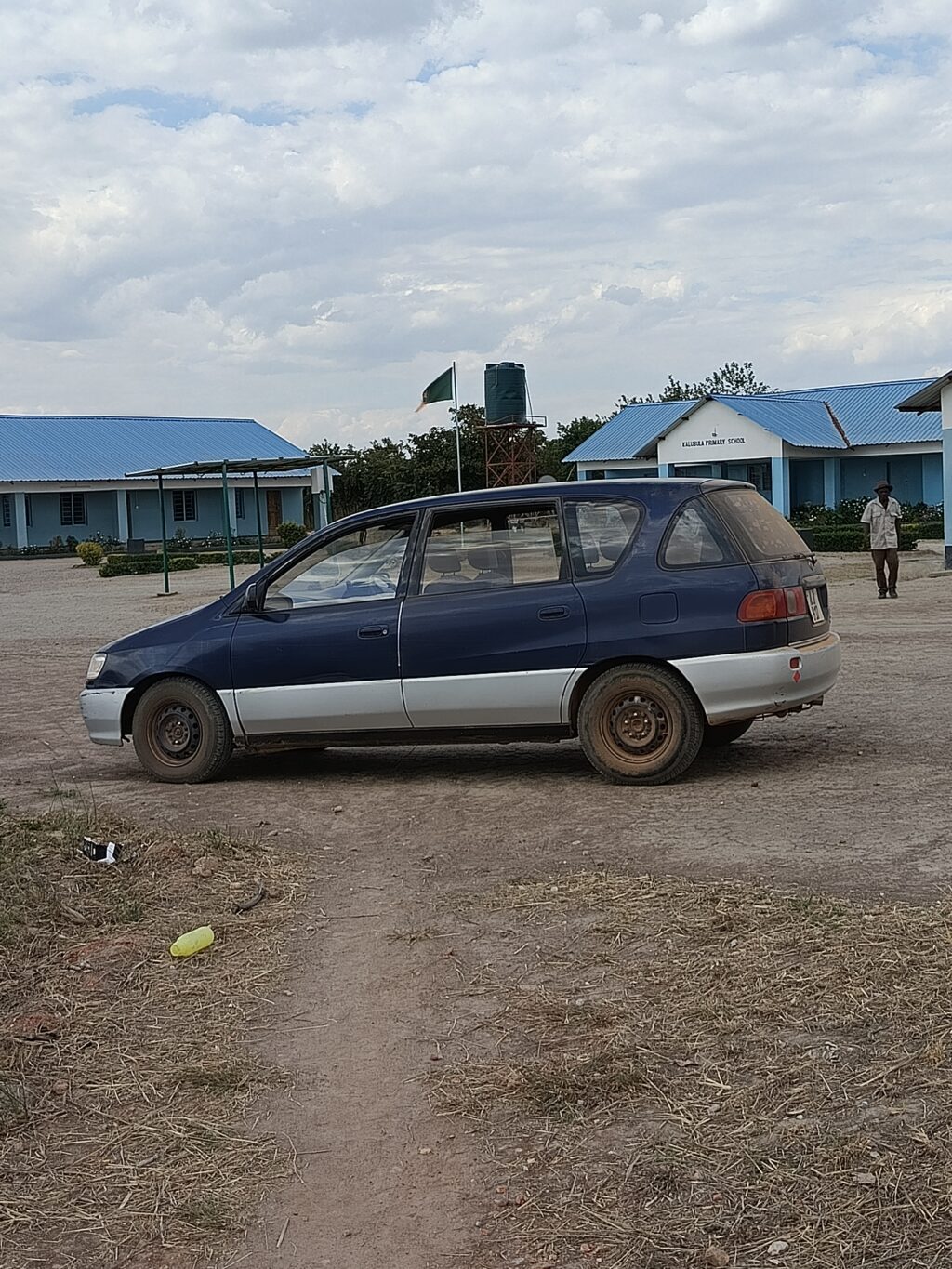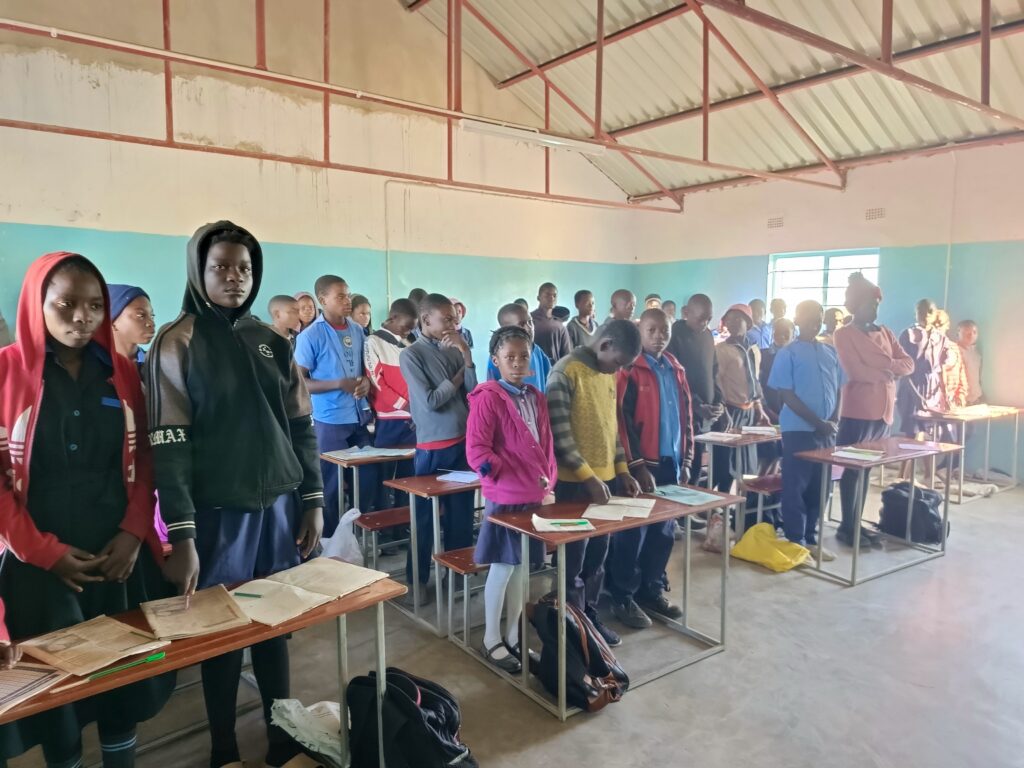Zambia
Education
$20,000 Goal
Summary of the Situation
Kalubula Primary is a community school started by the daughters of the Redeemer. By providing basic education, it aimed to increase the levels of welfare in Mutangama village and other surrounding villages.
The school opened in January 2019 with 20 pupils being taught by one sister, and pupils were learning under a makeshift grass thatched without uniforms because parents could not afford to buy them. Funds were mobilized to construct six classrooms, and to date, the school has 590 children from grades one to seven. Two sisters work in the school with six lay teachers, 3 untrained, and are paid a monthly stipend by the congregation. Applications have been made to the government to support the school and deploy trained teachers financially. We are glad to share that four teachers on the government payroll were deployed at our school, but financial support has not been provided yet. The expected outcome was at least 90% of children would know how to read and write and can proceed to secondary and tertiary levels. Poverty levels would be reduced in the long run as more people get educated and become self-sustainable.
I am glad to share that the school has a 100% passing rate in secondary school. We have been supplying pupils to different schools within and outside the district. The other thing we have achieved is that 50% of the students are in uniforms; we ask the parents to come and work at school, and then sisters buy school uniforms for the pupils when funds are available.
CHALLENGE
The Ministry of Education of Zambia has been working on the curriculum to develop subjects that will be useful in the 21st century. Technology studies have been introduced to the curriculum and should be taught in all primary schools in Zambia, both rural and urban areas. Kalubula primary school has neither a computer lab nor computers and electricity, for it’s in the bush. We have bought books for now, but most pupils have never seen a computer before. No partial
lessons are done.
How will the funds be used?
The funds will be used to purchase the following;
1. Solar panels and batteries
When the school has power, practical subjects will be easily achieved, and pupils staying nearby will be encouraged to come and study to enhance their performance and reduce early marriages.
2. Computer Lab
The funds will be used to build a computer Lab and purchase 30 computers. This will enable pupils to access computers and help them pass their examinations. Currently, they have a higher chance of failing because they are computer illiterate.
The Sisters’s Response
The Ministry of Education of Zambia has been working on the curriculum to develop subjects that will be useful in the 21st century. Technology studies have been introduced to the curriculum and should be taught in all primary schools in Zambia, both rural and urban areas. Kalubula primary school has neither a computer lab nor computers and electricity, for it’s in the bush. We have bought books for now, but most pupils have never seen a computer. No partial
lessons are done.
The administration will be able to do the work on time for the vehicle, and missing important activities, e.g., workshops, meetings, and other activities, will be a past story. The area gets flooded in the rainy seasons, and the new vehicle will help us not to be cut for by other schools, for we usually pack it during the six months of the rainy season.
Systemic Impact
In terms of Solar panels, batteries, computer labs, and computers, the school will continue producing a 100% passing rate in relevant and equal areas of education.

